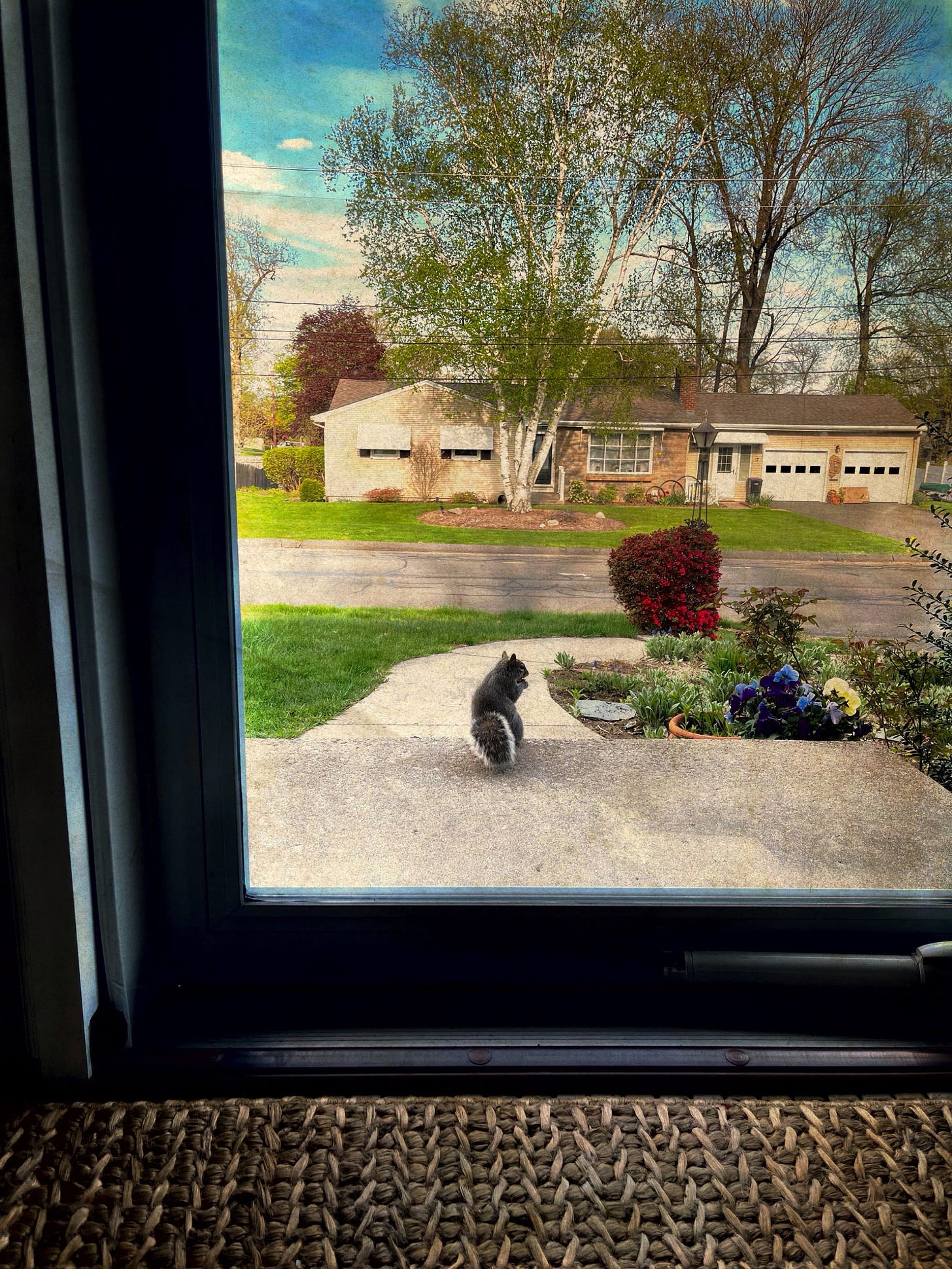Something I don’t often talk about, but is often at the forefront of what inspires my writing, are song lyrics. Almost every piece I write has at least one song associated with it, sometimes more. Sometimes the title of a work in progress, or even a published piece, is a song title.
I thought about this this morning because the Indigo Girls’ cover of the Rod Stewart song “I Don’t Wanna Talk about It” came into my head and wouldn’t go away. I’ll admit: either I had forgotten or I had never known that the Indigo Girls’ version was a cover. The knowledge that this was originally a Rod Stewart song struck a chord (pun intended!) in me: it creates an unforeseen connection between the two main characters in what I fondly (or not, depending on the day) refer to as my “impossible project.” Maybe this is a door, or a window, a new way in which to view the story.
Something I’ve discovered about working on a long-form project is that these doors, or windows, or vistas, or unexpected detours, or roadblocks, these middle of the night revelations, signs, etc. are a part of the process, a necessary part, and we resist them to our own detriment. I think that if we resist them regularly, we become blocked to the point of inability. But if we spend too much time looking for these clues, that also works against us, because we grow distracted.
There has to be a balance, some kind of openness that is also protective of the intention. We can ask questions, but we can also accept the possibility that the answer might not make sense.
Most of the work I’ve been doing lately has to do with memory. Perhaps it’s an age thing; perhaps memory has long been a preoccupation of mine and now I’m giving it a special kind of attention.
Memory, I’ve come to understand, is a specific type of imagination. Imagination is the “the act or power of forming a mental image of something not present to the senses or not previous known or experienced” [italics mine]. A memory sometimes feels more real because it is a thing that happened once, but honestly, after a moment is over, the recollection of it is not far removed from our ability to create a projection of the future or a fictional scene. I guess what I mean to say is, remembering is an act of creation. Every single time.
I often say I have a good memory, and perhaps this is true: I recall moments and feelings and instances that others forget; I am particularly good at remembering phone numbers and email addresses; I am good with faces and names; I can go somewhere once and then get there again without any directions. These capabilities come with a flip-side (of course they do, we can’t all be good at everything): you can tell me the name of a plant four-thousand times and I’ll probably forget it; no matter how many times I read a book or poem or see a movie I am unlikely to be able to quote it. I have no idea how much of these abilities is innate and how much is cultivated and how much is both.
I think of myself as a fiction writer, though by now I’ve published my share of nonfiction. Honesty and truth are important to me, no matter which genre I’m working in. From these two aspects, I expect (I demand?) a kind of clarity that isn’t always clear. This isn’t as contradictory as it seems. The truth doesn’t always make sense, does it? Often times, a lie is much more logical.
In music lyrics, the very best ones, I find a particular balance: emotional truth; memory attunement; unexpected connections and overlap of lives and timelines.
Maybe you’ve felt this too? Maybe we’re all singing along to the best of our ability, adding our voices to the intricate web of imagination.
My latest in book coverage:
An interview with Kristine Langley Mahler about A Calendar is a Snakeskin over at Full Stop.
A review of Audubon as Artist: A New Look at Birds of America by Roberta Olsen.
&&&
My latest reading faves:
Emily Henry’s Happy Place (a “guilty” pleasure—easy to forget the real world when I’m in one of Henry’s)
Ross Gay’s The Book of Delights (I love when a book makes me laugh and happy to be alive; sinuous and, yes, delightful, prose)
Good Omens by Terry Pratchett and Neil Gaiman (after being told by more than a handful of people that I should read this, I finally got a copy. Happily ensconsed in the imminent end of the world!)
Till next time—






Oh, good ol’ memory! I’m reading Proust was a Neuroscientist by Jonah Lehrer. The author talks exactly about this issue—memories are a new thing, recreated every time for the first time…and of course he goes on. After all, many of us are often in search for lost time —